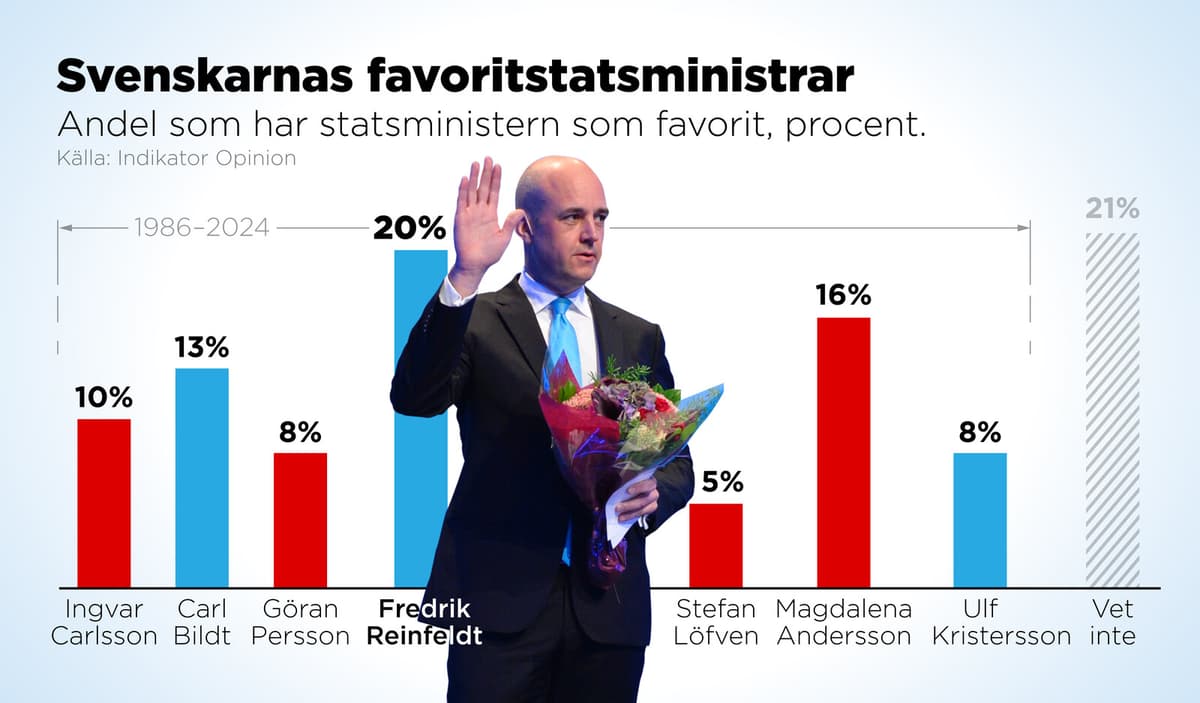Over the past 38 years, Sweden has had seven prime ministers – four Social Democrats and three Moderates. Of these, Fredrik Reinfeldt, after his eight years in power (2006-2014), is the most popular prime minister among today's voters. This is shown by an opinion poll from Indikator Opinion.
Among 2024's voters, 20 percent state that Reinfeldt is their favorite. Magdalena Andersson, who held the post for ten months, comes in second with 16 percent. Then come, in descending order, Carl Bildt, Ingvar Carlsson, Göran Persson, and Ulf Kristersson. Stefan Löfven ends up last, favored by 5 percent of the voters.
Reinfeldt stands out
Per Oleskog Tryggvason is the head of opinion at the Institute for Quality Indicators, which has been responsible for the study.
This is the first time that an opinion poll has looked back and measured how popular politicians are even after they have finished their term. It says something interesting about Swedish political history.
What do the results say about Reinfeldt's political legacy?
The results are very interesting if you look at the path that The Moderate Party has chosen in recent years. Reinfeldt stands out as the most popular and is the favorite among both Moderates and Center Party supporters. Moreover, he is relatively popular among those who lean slightly to the left, says Per Oleskog Tryggvason.
Gender differences
Only one of the eight living prime ministers is a woman. Are there any differences in the results related to gender?
Yes, there is a significant difference in how men and women view Magdalena Andersson. Almost twice as many women have her as their favorite compared to men. There are also significant gender differences among those who lean to the left, says Per Oleskog Tryggvason.
The survey was directed at a random sample of 6,861 eligible Swedish voters over 18 years old. Data collection took place during the fall of 2024. A total of 2,554 responses were collected, resulting in a response rate of 37 percent. The results have been weighted against public statistics regarding gender, age, and party affiliation from the 2022 parliamentary election to ensure representativeness.
Source: Indikator Opinion






